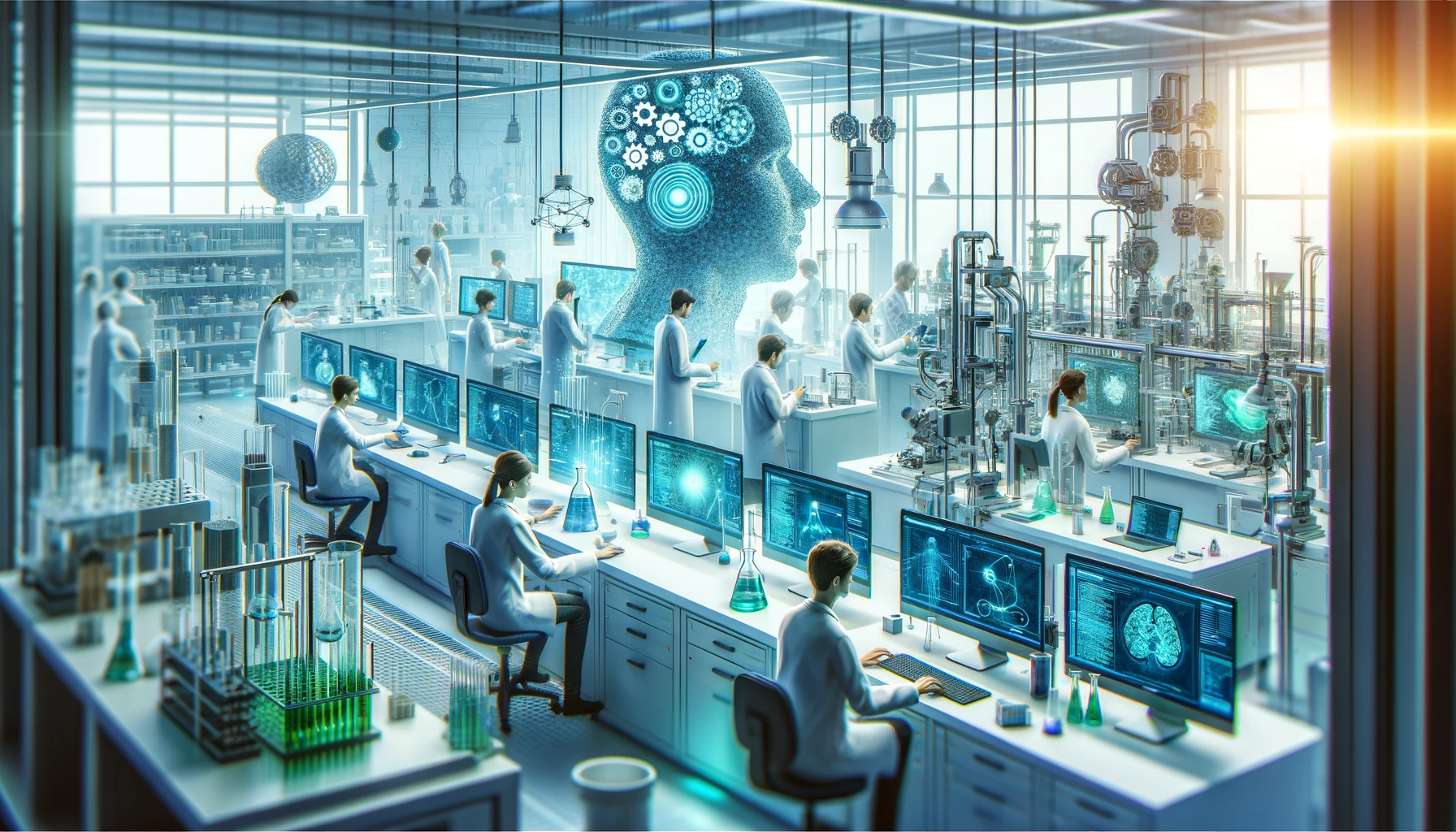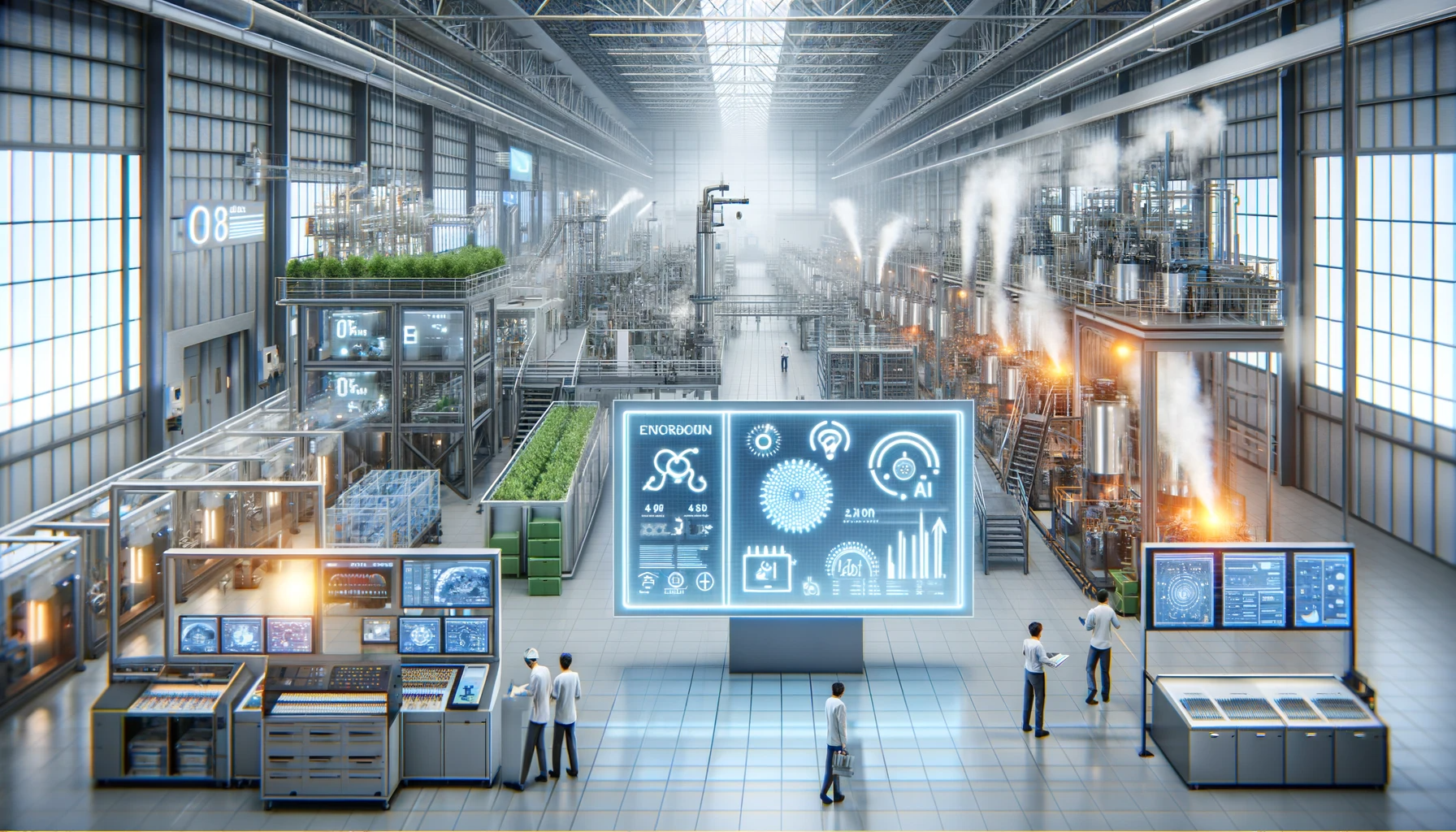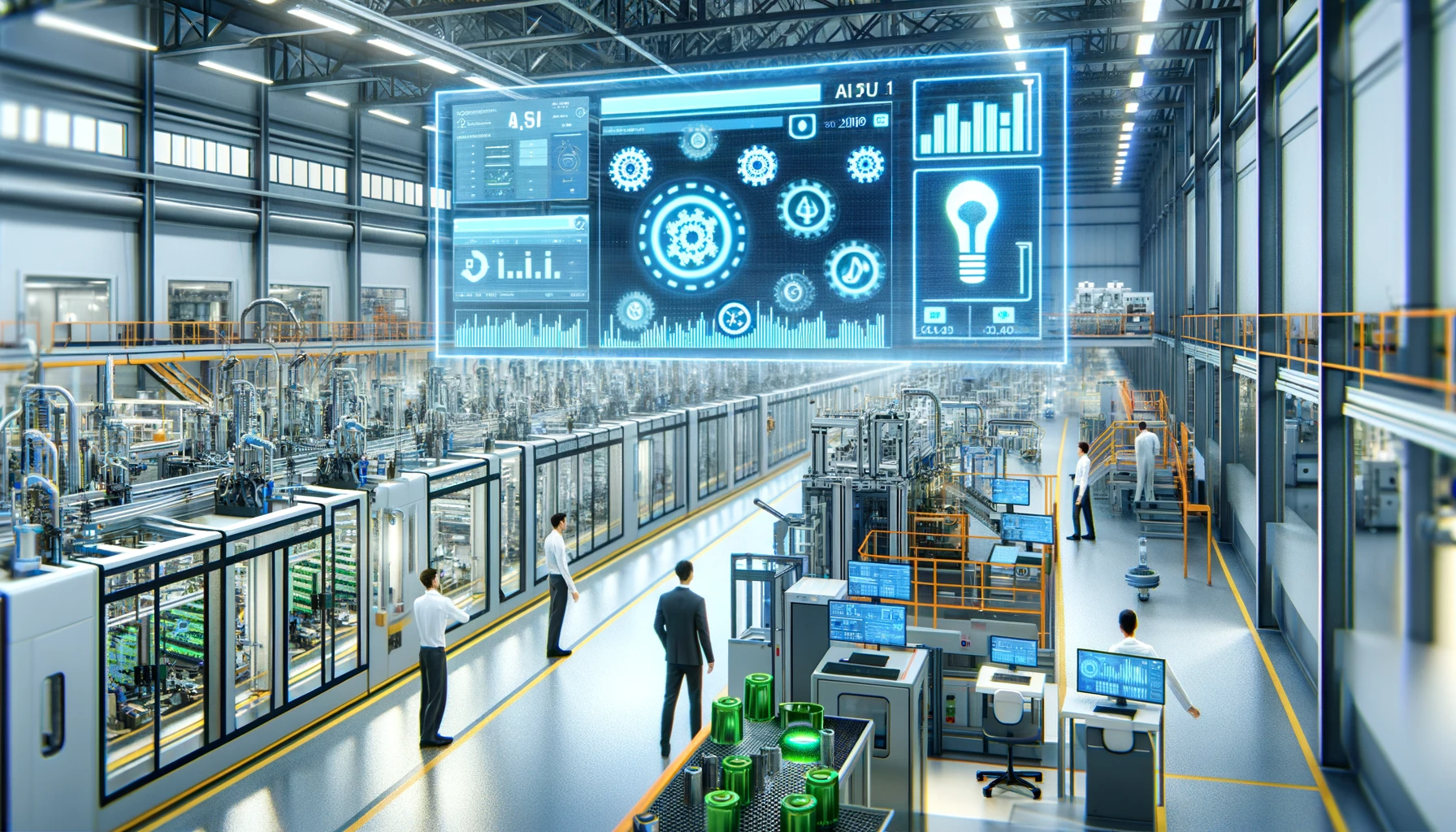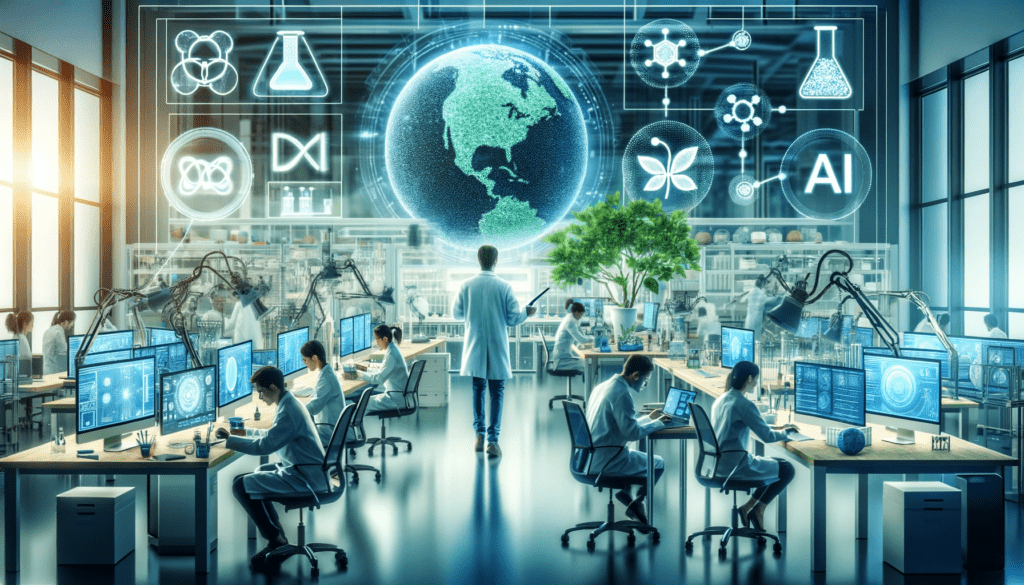Manufacturing, a cornerstone of global economic development, has traditionally been associated with significant environmental impacts. This sector, vital for producing goods essential to modern life, is also a major contributor to environmental challenges, including resource depletion, waste generation, and greenhouse gas emissions. As the world grapples with these issues, the industry faces mounting pressure to transform and adopt more sustainable practices.
The advent of artificial intelligence (AI) in manufacturing presents a groundbreaking opportunity in this transformation. AI introduces unparalleled capabilities in terms of data processing, predictive analytics, and automation. These technologies are not just reshaping the manufacturing landscape but are also key to making it more sustainable and efficient. By integrating AI, manufacturers can optimize resource usage, reduce waste, and minimize their environmental footprint, all while enhancing productivity and competitiveness.
This article delves into the transformative role of AI in manufacturing, exploring how it is revolutionizing processes to align with sustainability goals. The focus will be on the various applications of AI that are making manufacturing more efficient and environmentally friendly, the challenges in implementing these technologies, and the future prospects of an AI-driven sustainable manufacturing sector. Through this exploration, we aim to understand the extent to which AI is not just an industrial tool, but a catalyst for a more sustainable and efficient manufacturing paradigm.

The Evolution of Manufacturing
The history of manufacturing is a story of constant evolution, marked by innovations that have continually reshaped the industry’s landscape. From the manual craftsmanship of pre-industrial societies to the advent of mechanization in the Industrial Revolution, each phase brought significant shifts in production methods and efficiency. The 20th century witnessed the introduction of assembly lines, further revolutionizing manufacturing by standardizing mass production and significantly boosting output.
However, traditional manufacturing processes have not been without challenges. These systems often led to significant waste production due to inefficiencies in material usage and energy consumption. The reliance on fossil fuels for energy further exacerbated environmental pollution, contributing to global issues like climate change and resource depletion. Additionally, traditional manufacturing methods often lacked the flexibility to quickly adapt to changing market demands or disruptions in supply chains.
In response to these challenges, there has been a global shift towards sustainable manufacturing practices. This approach emphasizes reducing environmental impact through efficient resource use, minimizing waste and emissions, and incorporating renewable energy sources. Sustainable manufacturing also focuses on creating adaptable and resilient production systems that can withstand various economic and environmental pressures.
Understanding AI in Manufacturing
Artificial Intelligence (AI) in manufacturing refers to the use of computer systems and algorithms capable of performing tasks that typically require human intelligence. Key components of AI relevant to manufacturing include machine learning, where algorithms improve automatically through experience and data analysis, and data analytics, which involves analyzing complex data sets to uncover patterns and insights.
AI integrates into current manufacturing systems in various ways. It enhances decision-making processes by providing real-time data analysis, predicting outcomes, and offering actionable insights. This integration is often seamless, with AI systems working alongside existing machinery and workforce, augmenting rather than replacing human efforts.
Examples of AI technologies in manufacturing are diverse. Predictive maintenance, using AI algorithms to predict equipment failures before they occur, minimizes downtime and maintenance costs. Robotics, particularly collaborative robots (cobots), work alongside humans to increase efficiency and safety. Other applications include AI-driven quality control systems, supply chain optimization algorithms, and AI in design and prototyping, where it accelerates product development and reduces material waste.

AI-Driven Efficiency in Manufacturing
AI significantly improves manufacturing efficiency by streamlining operations, reducing waste, and optimizing resource use. One of the primary ways AI achieves this is through predictive analytics. By analyzing data from sensors and machines, AI can predict when equipment needs maintenance, preventing costly breakdowns and production halts. This proactive approach to maintenance is far more efficient compared to traditional reactive models.
Case studies highlight these efficiency improvements. For example, a major automobile manufacturer implemented AI-driven predictive maintenance in their production lines, resulting in a significant reduction in unplanned downtime and maintenance costs. Another case involves an electronics company that used AI to optimize its supply chain, leading to reduced inventory costs and improved delivery times.
The impact of such efficient processes on cost and productivity is profound. AI-driven efficiencies lead to lower operational costs due to reduced waste and energy consumption. Productivity gains arise from minimized downtime and more streamlined production processes, enabling manufacturers to respond quicker to market changes and customer demands. This increased efficiency not only benefits the manufacturers in terms of profitability but also contributes to broader environmental goals by reducing the overall ecological footprint of manufacturing activities.
AI and Sustainable Manufacturing Practices
Artificial Intelligence (AI) is increasingly recognized as a vital tool in fostering environmentally friendly manufacturing practices. By leveraging AI’s advanced data analysis and predictive capabilities, manufacturers are reducing their environmental impact while maintaining productivity and efficiency.
AI contributes to sustainable manufacturing in several key areas. One of the most significant is in reducing the carbon footprint of manufacturing operations. AI algorithms optimize production schedules and supply chains, leading to reduced energy consumption and lower greenhouse gas emissions. For instance, AI can dynamically adjust energy use in real-time, shifting operations to times when renewable energy sources are available or energy demand is lower.
In managing energy consumption, AI systems can predict and intelligently manage the loads on electrical systems, reducing overall energy usage and costs. This is particularly relevant in industries with high energy demands, such as steel or chemical manufacturing.
Real-world examples of these practices include a major automotive manufacturer that implemented AI-driven systems to optimize its painting processes, significantly reducing volatile organic compound emissions. Another example is a tech company using AI to manage its data centers more efficiently, leading to substantial energy savings.
Challenges and Limitations
While AI offers significant advantages in manufacturing, its implementation is not without challenges. Technical challenges include the integration of AI into existing manufacturing systems, which can be complex and costly. There’s also the need for substantial data collection and processing, requiring robust IT infrastructure and expertise.
Ethical and economic considerations are also prevalent. The introduction of AI-driven automation raises concerns about job displacement in the manufacturing sector. Workers may need retraining or upskilling to work alongside AI technologies, necessitating significant investment in human capital.
Moreover, the limitations of current AI technologies in addressing all aspects of sustainability must be acknowledged. AI systems are only as good as the data they are trained on, and if these data sets are limited or biased, the solutions proposed by AI may not be entirely effective or equitable.

Future of AI in Manufacturing
The future of AI in manufacturing is marked by continuous innovation and an expanding range of applications. Emerging trends include the integration of AI with other cutting-edge technologies like the Internet of Things (IoT) and blockchain, further enhancing transparency and efficiency in manufacturing processes.
Research and innovation play a critical role in advancing these AI applications. Continued investment in AI research is essential for developing more sophisticated, adaptable, and accessible AI solutions that can meet a range of manufacturing needs and sustainability goals.
Predictions for the future impact of AI on manufacturing include increased automation, more efficient resource use, and a significant reduction in waste and emissions. AI is expected to enable more personalized and flexible manufacturing processes, adapting quickly to changing market demands and environmental conditions.
Conclusion
In conclusion, AI is proving to be a transformative force in the manufacturing sector, driving efficiency and sustainability in tandem. Its role in optimizing production processes, reducing waste, and managing energy consumption illustrates its potential to significantly reduce the environmental impact of manufacturing. However, the journey towards fully realizing AI’s potential in manufacturing is accompanied by technical, ethical, and economic challenges that must be carefully navigated.
As we look to the future, the importance of AI in the evolution of manufacturing practices cannot be overstated. It offers a promising path towards more sustainable and efficient manufacturing, balancing technological advancement with environmental
